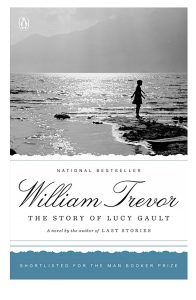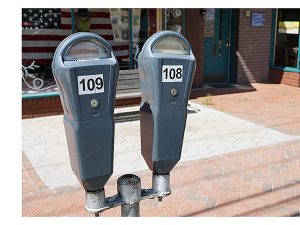By Anne LeVeque and Jill Raymond
Not long ago, a library patron asked for help in finding information about Critical Race Theory (CRT). The patron had searched online using Google and said that all the results, “were negative.” We helped the patron find unbiased information about CRT, including a clear definition of it. There is a huge amount of misinformation and disinformation about CRT being bandied about in the public square, not just on social media but in school board meetings, state legislatures, and the courts. Many of these debates are heated and have led to death threats against school board members.
The consequences of poor information literacy can be dire. In the age of COVID, people have literally died because they believed incorrect information about the disease, how to prevent spreading it, how to treat it, and, of course, vaccinations that prevent it. Not only that, but the misinformation around COVID has led to significant financial losses in our economy. The Johns Hopkins Center for Health Security published a report in October 2021 estimating that the cost of COVID vaccine misinformation and disinformation is between $50 and $300 million dollars per day since May 2021, and that is just in the United States. Global figures are much higher. At press time, the omicron variant has just emerged, and we may see this figure increase significantly.
First, let’s start with some definitions: What is misinformation, what is disinformation, and what is the difference? The meanings are very close. Both terms refer to false information. Misinformation refers to false information, such as false rumors, misunderstanding of information, and misleading use of facts. Disinformation is like misinformation; false information is used deliberately and in an organized fashion. The term has its origins in the Cold War era and originally referred to a type of propaganda, particularly government-sponsored propaganda. The word “disinformation” has come to mean any organized campaign of false information, whether government-sponsored or not. Think of it as the deliberate intent to convey an untruth or to persuade people of an untruth for the purpose of achieving some goal of the perpetrator.
Information literacy is the ability to distinguish reliable information from mis-and-disinformation. The term arose in the 1980s in the context of libraries and refers to the ability to evaluate information critically to determine its authenticity, veracity, and purpose. In this article, we hope to convey information about some of the tools available to help you do that.
Types and Sources of Misinformation
We all pass around misinformation. We all like to be “in the know.” Sometimes an otherwise reliable source we trust has made an error, and we have passed that on in casual conversation or on social media.
One source of misinformation is our own memory. Professional investigators know that the memories of eyewitnesses to crimes or other events are notoriously unreliable, some have even tweaked their interviewing techniques appropriately.
Are there things you would like to be true, but you suspect probably are not, like horoscopes? Are you ever in arguments with friends about a scandal involving a sports figure or celebrity? You may not want to think this person guilty of serious moral failings, but the credible evidence suggests that maybe they are.
Psychologists know that people too often believe what they want to think is true for emotional reasons. This is called “confirmation bias.” People often want to believe something just because they think large numbers of other people think it’s true. This can bring about something called the Mandela Effect in which large numbers of people believe that something happened (the death of Nelson Mandela in prison in the 1980s, when in fact he died in 2013 after serving as president of South Africa) that didn’t occur.
Another source of misinformation is “spin.” Spin is the manipulation of information for a particular purpose. It is not necessarily inaccurate, but it is info that is packaged in such a way as to achieve a specific reaction in listeners/readers. Relevant details may be left out deliberately or irrelevant ones disproportionately emphasized. The best example of this is television commercials. All of us boast, exaggerate, or try to “spin” the facts if, for instance, we are embarrassed about something. But for serious and reliable information based on facts as society currently has the tools to discern them, casual assertions cannot be taken at face value.
An extreme sort of spin is clickbait. Clickbait is not necessarily incorrect, but it is designed to tempt. It screams something phrased to enrage, terrify, offend, or otherwise make people put down what they’re doing and look at something they would otherwise ignore. Whenever this is the case, we must look at what interest is being served here. Most clickbait articles are on sites that are paid “per click,” so there is a financial interest in getting people to read these lurid articles.
Satire is such an enormous source of misinformation that some social media platforms have required it to be tagged as such. A well-written satire is not always discernible as comedy. Three centuries ago, Johnathan Swift wrote “A Modest Proposal,” which suggests that the poor in Ireland could survive by eating their children. Scholars debate Swift’s precise target, but it certainly served to excoriate British policy towards the Irish.
Today, Alexandra Petri writes columns for the Washington Post with headlines like, “Big Bird is a Communist.” But as things get passed around on the internet, often without identifying source details, some people mistake satire for sincere argument and may be inclined to join up with a movement that isn’t real. Is Big Bird a communist? Another example is in the 1990s, the satirical news website The Onion ran a joke article saying that J.K. Rowling, author of the Harry Potter books, was encouraging children to worship Satan. This article was spread among people who believed it to be a real news article and evidence that the Harry Potter books were Satanic. Those who spread the article, presenting it as real, whether they knew it was satire, have spread misinformation.
The founders of America knew that a mass of people could be manipulated into an angry mob capable of violent behavior none of the individuals would separately, having thought about it, engage in. What they feared is really a combination of disinformation—on the part of the perpetrator, who has something to gain—and misinformation being passed along among members of a crowd that is emotionally primed to believe what the perpetrator is telling them. And that’s why the founders knew the framework of checks and balances they devised was not by itself sufficient for protecting democratic governance. An educated and knowledgeable populace was necessary. Inscribed on the Library of Congress building named for him is James Madison’s warning: “Knowledge will forever govern ignorance: And a people who mean to be their own governours must arm themselves with the power which knowledge gives.”
Library Director Jessica Jones contributed to this article. Next month’s article (Part Two) will discuss how to tell reliable information from misinformation.
This article was featured in the January 2022 Newsletter. Visit the Takoma Park Newsletter webpage to see full list of past newsletters.
 by the Friends Book Group on Thursday, March 24 at 7:30 p.m. in the Hydrangea Room of the Community Center.
by the Friends Book Group on Thursday, March 24 at 7:30 p.m. in the Hydrangea Room of the Community Center. parking meters will be installed in front of 6940 Carroll Ave, across from CVS, where previously there were none. The installation will occur as soon as ordered materials arrive. The new meters will help turnover parking spots more frequently in support of nearby businesses.
parking meters will be installed in front of 6940 Carroll Ave, across from CVS, where previously there were none. The installation will occur as soon as ordered materials arrive. The new meters will help turnover parking spots more frequently in support of nearby businesses. from his native country of the Gambia, but when it came to West African fine dining in the region, there was an obvious shortcoming. “There was a vacuum that I had to fill because at the time there wasn’t a fine-dining West African restaurant,” Joof said. “There was always some hole-in-thewall place for the cuisine, but not for the dining experience. I thought that we were missing out on literally introducing the cuisine and hospitality to America.”
from his native country of the Gambia, but when it came to West African fine dining in the region, there was an obvious shortcoming. “There was a vacuum that I had to fill because at the time there wasn’t a fine-dining West African restaurant,” Joof said. “There was always some hole-in-thewall place for the cuisine, but not for the dining experience. I thought that we were missing out on literally introducing the cuisine and hospitality to America.” our Get Out and Play crew! Take a few moments to get to know Haven, who joins us as the Youth Success Coordinator.
our Get Out and Play crew! Take a few moments to get to know Haven, who joins us as the Youth Success Coordinator.